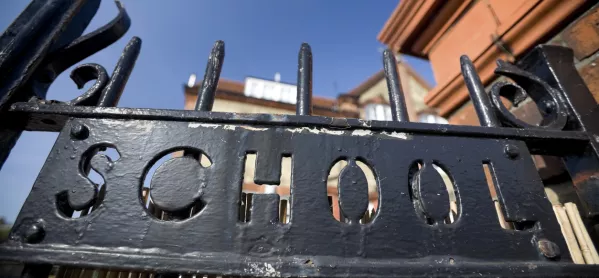- Home
- Give teachers PPE to keep schools open, say researchers
Give teachers PPE to keep schools open, say researchers

The government must make keeping schools open after September a priority, to prevent further damage to current pupils’ future earning potential and wellbeing, a report from the Royal Society warns today.
Providing “substantial” extra resources for schools, personal protective equipment for teachers and older children, and prioritising vaccines for children are among measures the Royal Society researchers have urged the government to adopt to stop schools from being forced to shut down again.
The report predicts that the long-term economic consequence of school closures so far will be felt from 2030, when a quarter of the workforce will have lower skills and see its earning potential reduced by 3 per cent, with negative consequences for the economic growth rate.
News: Covid catch-up cash allocation ‘may be costly mistake’
Coronavirus: Lockdown ‘a national disaster for attainment gap’
Analysis: How big will the learning gap be after lockdown?
Meanwhile, the immediate negative impact on children’s mental and physical health will be considerable, say researchers.
The warning is published today in the Balancing the Risk of Pupils Returning to Schools report by Data Evaluation and Learning for Viral Epidemics (DELVE), a multi-disciplinary group convened by the Royal Society.
Coronavirus: The danger of schools closing again
The report argues that the risks involved in reopening schools during the pandemic are not as high relative to other activities.
Although the evidence on the infection risk from school opening is still limited, the experience of most other countries that have already taken this step supports this view, the report claims.
By contrast, the evidence on the negative impact of closing schools is considerable and robust, the researchers argue.
Professor Simon Burgess, professor of economics at the University of Bristol and a lead author of the report, said, “We know how damaging it is for children to miss out on school. The amount of school already missed due to the pandemic could impact on their earning potential by around 3 per cent a year throughout their lives and impact on productivity in the UK for decades.
“While it is still early days, there has been little evidence of surges in infection rates in countries that have opened up their schools, including countries that have fully reopened. While we have to do all we can to reduce the risk of transmission, we do need to get our children back to school.”
The report calls on the government to:
- Suppress the virus in the wider community as a priority, to reduce the risk of future disruptions to learning when schools are at full capacity.
- Have objective and transparent criteria for local decision making about closing and opening schools in case local lockdowns are needed.
- Provide realistic guidance and substantial extra resources to ensure schools can minimise chains of transmission ( for example: parental guidance on when to keep their child at home applying the precautionary principle; rigorous hygiene; physical distancing and reduced mixing; extra teachers; PPE - including face coverings for teachers, older children and those with underlying heath issues; management of staffrooms; regular testing; and prioritisation for vaccines for teachers).
- Implement effective test-trace-isolate systems that enable a rapid response to outbreaks, and that allow schools to reopen quickly.
- Establish effective, clear and unified communication with school leaders, teachers and parents to manage opening and closing of schools in response to local conditions.
The report also explores the impact of school closures on education inequality.
Professor Anna Vignoles, professor of education at the University of Cambridge and a lead author of the report, said: “Shutting down schools has impacted all children but the worst effects will be felt by those from lower socioeconomic groups and with other vulnerabilities, such as a pre-existing mental health condition.
“Children from low-income households, in particular, are more likely to lack the resources to engage fully with remote schooling. Those with pre-existing conditions are more likely to experience a worsening of their mental health. This has to be taken into account in how we come out of this pandemic.”
The report also calls for a programme of anonymous assessment of education achievement and pupil mental health across all ages to gauge the effect of education disruption on learning and wellbeing.
Keep reading for just £1 per month
You've reached your limit of free articles this month. Subscribe for £1 per month for three months and get:
- Unlimited access to all Tes magazine content
- Exclusive subscriber-only stories
- Award-winning email newsletters



